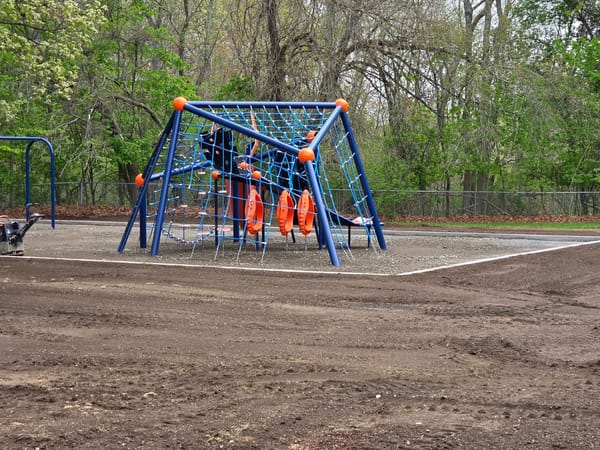TownVote: Should Burlington Exclude Capital Projects from the 2.5% Cap?
Voice your choice about whether or not the town of Burlington should exclude capital projects from the operating budget.


The town of Burlington is planning on building a new police station and a new Fox Hill Elementary School. But should their financing be applied to the 2.5% cap mandated by state law, or should the town exclude capital projects?
Background - Police Station
The building where the Burlington Police Department is currently housed was built in the last years of the 19th century and used as the town's sole elementary school from 1899 until 1972. After being used to house a variety of business and town programs, the building was converted into the current police station and renovated/added onto in the early 1990s.
The conditions of the current building have been described as deplorable. Leaky windows and improper sealing has led to water and mold problems that regularly affect those who use the building.
A feasibility study was approved by Town Meeting and conducted to confirm the site where the Police Station currently sits is appropriate for the new station, and the plan is to rezone a part of the Grandview Farm property where the Sculpture Park stands now, demolish the current building, and build a new police station.
Background - Fox Hill
The Fox Hill Elementary School was built in the 1960s and has experienced much enrollment pressure over the last several years. According to Superintendent, Eric Conti, the building "doesn't function well as a school anymore," and the district has applied for funds from the Massachusetts School Building Authority (MSBA) to build a new school.
A feasibility study was approved by Town Meeting and conducted; several options were considered, including the possibility of combining Pine Glen and Fox Hill. Ultimately the decision was made to rebuild Fox Hill alone on the Fox Hill property. The town expects to be partially reimbursed for this project by the MSBA.
Cost
The cost for a new police station is estimated to be between $45 and $50 million; a new Fox Hill, after reimbursements from MSBA, is currently projected to cost the town $60-65 million.
In the last fifteen years, the town has undergone several capital projects, such as the DPW and Recreation Department garage, Fire Station 2, and the Memorial and Marshall Simonds School projects. These projects have fit easily into the town's operating budget. But the cost of materials and labor have gone up considerably in the last five years, and while the police station and Fox Hill could feasibly fit into the operating budget, other options are being explored to ensure the town's future financial health.
Proposition 2 1/2 Background
In 1980, the state of Massachusetts enacted a law stating municipalities are not allowed to raise the property tax rate more than 2.5% each year. This is calculated by a state formula that incorporates new spending and provides an offset for new growth, but does not factor in inflation, which has been high in the last several years.
When a municipality needs to raise property taxes by more than 2.5%, it must issue a ballot question and voters have to vote in favor. These "2 1/2 Override" votes have a 41% success rate in the state.
When a municipality's annual tax increase is below the 2.5%, an "excess levy capacity" is built up. This is additional taxation that can be implemented without a 2.5% override. Burlington has $13,000,000 in excess levy capacity and the operating budget increases by about 4.5% each year (offset by new growth around 1.9% each year). Doing some quick math suggests that, while Burlington has plenty of breathing room, that $13 million is going to decrease over time.
If the excess levy capacity gets all used up, the town will need to either cut services or ask residents for permission to raise taxes more than 2.5%.
A town might choose to exclude capital projects from that 2.5% cap, rather than folding them in. This "debt exclusion," voted on via town-wide ballot, would mean that the project would not affect the excess levy capacity.
Funding the project without a debt exclusion or 2 1/2 Override does not require a town-wide vote but does eat into the excess levy capacity, thereby speeding up the rate at which the town runs out of that buffer.
Tax Implications to Residents
The police station and the Fox Hill School might be applied to the 2.5% tax increase limit, or they might be excluded. Regardless, as long as the borrowing is approved by Town Meeting, the projects can go through and will affect taxes in the same way. The impact to the tax bill on the median-priced home in Burlington is estimated to be about $100 per year for the police station and $150 for Fox Hill.
The only way taxes don't go up is if the project is not completed.
Future Town Financial Health Implications
As mentioned above, Burlington's operating budget is increasing more quickly than the new growth, which means a portion of the town's excess levy capacity is used up each year. A presentation by John Iler, Ways & Means Committee Chair, suggested that excluding the police station debt (as wall as the debt for the Fox Hill School, which will be discussed in a separate Issue) will more or less double the time it takes to use up the entire cushion, assuming all else holds equal.
Summary
Burlington is facing several capital projects that will need to be funded. If Town Meeting approves the borrowing, voters will likely be asked to allow the town to exclude the debt from the 2.5% threshold in order to preserve the excess levy capacity.
Should these two projects be excluded from the 2.5% limit? Via Burlington's TownVote, in partnership with VoteLight, you can participate in this process as it unfolds. You will need to sign up to verify your location, and then you can let our town's officials know where you stand on these issues. Click each Issue below to voice your choice!





